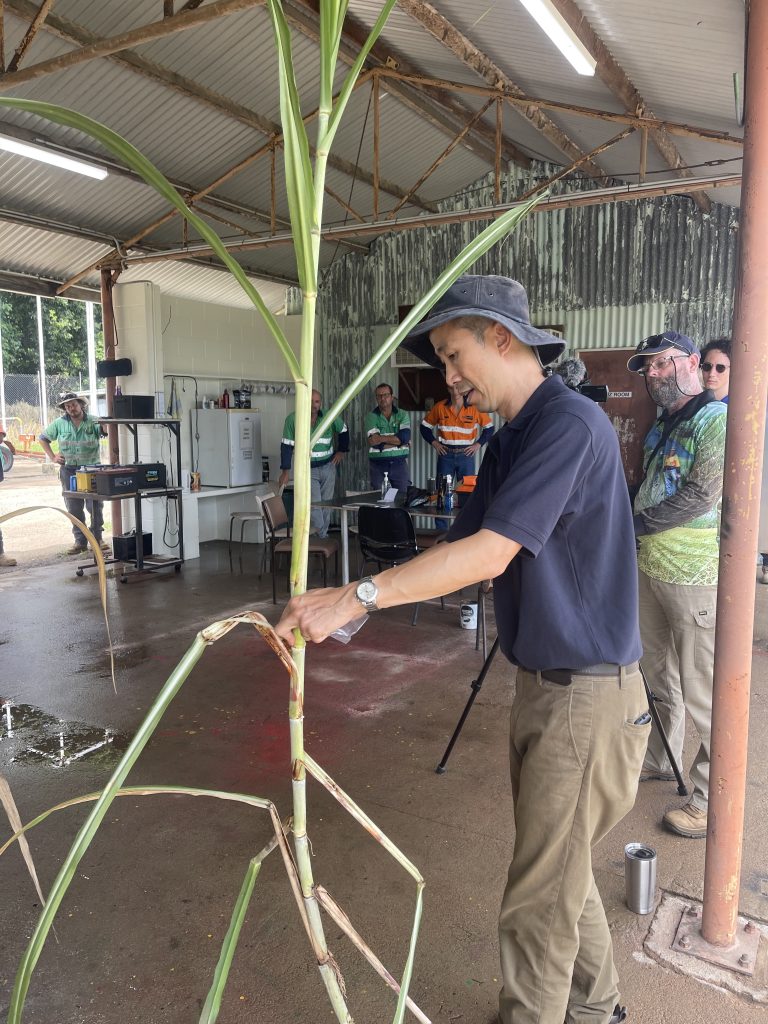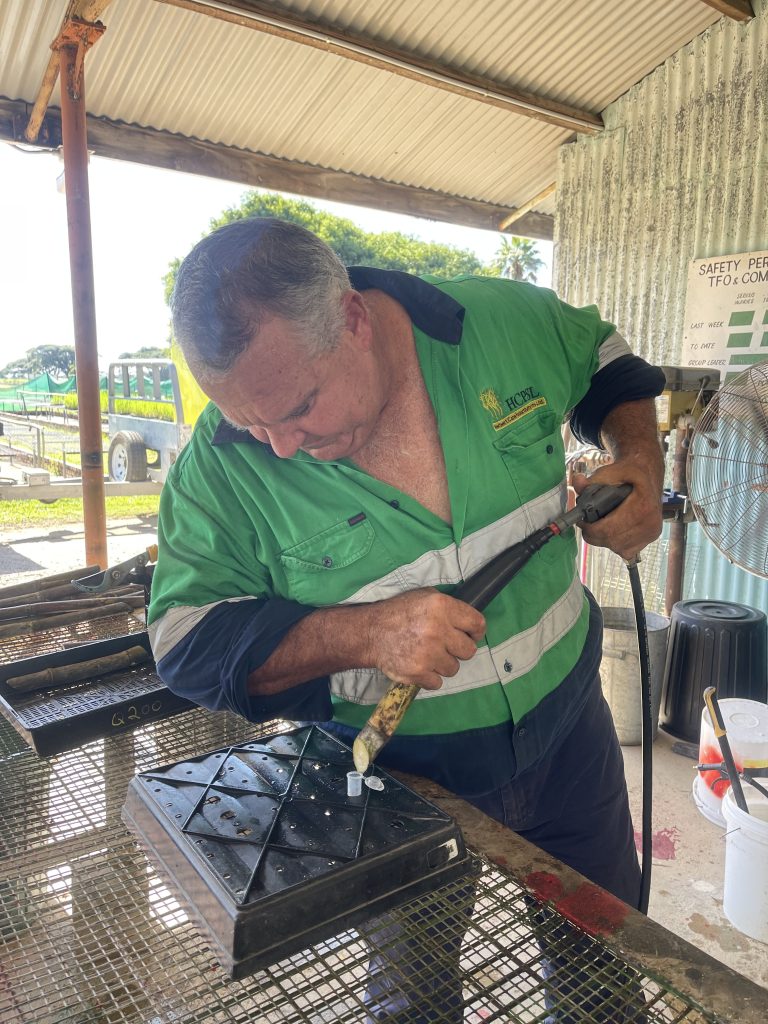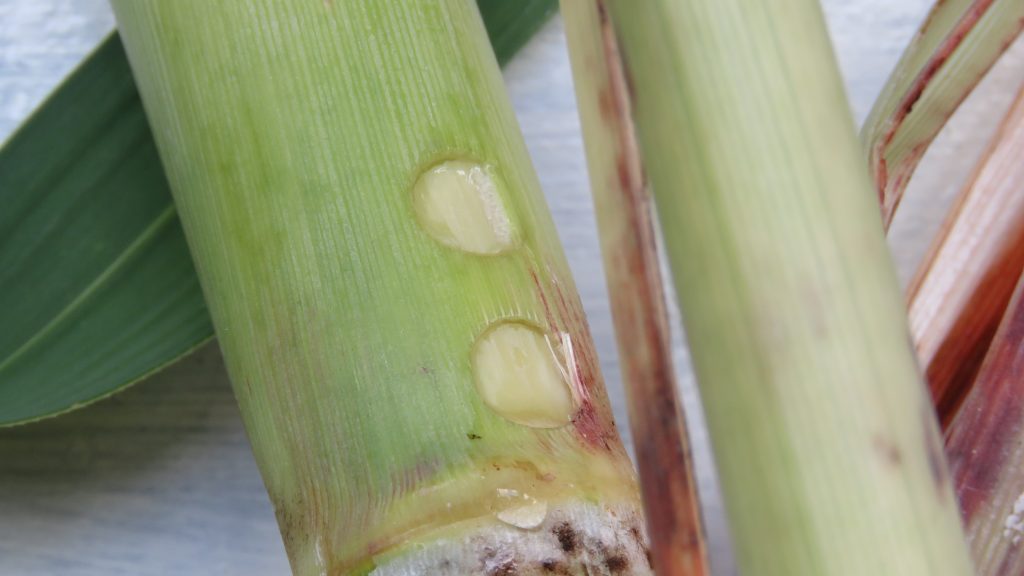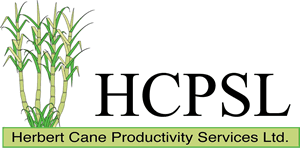It’s time to test seed cane for planting again
Press release: Monday 30 January 2023
HCPSL will start seed cane inspections for growers tomorrow (Tuesday 31 January) for all Herbert growers. This year things will be done a little differently. HCPSL will be using three different methods of testing this season.
SRA’s Molecular Plant Pathologist Dr Chuong Ngo and Translational Research Pathologist Dr Rob Magarey visited HCPSL on 24 January to train HCPSL staff on the new Ratoon Stunting Disease (RSD) testing method called leaf sheaf biopsies (LSB).
A core (otherwise called a leaf punch) is taken from the leaf sheath of the cane plant, mixed with distilled water, and then sent off to the laboratory for analysis. The RSD bacteria weeps from the leaf punch into the distilled water over a few hours and is then analysed.

This sampling method is just as accurate as the expressed xylem sap method and both use the quantitative polymerase chain reaction (qPCR) test that was made available to growers two years ago by HCPSL. However, the LSB method is more efficient in the field for collection of samples. It can also be done earlier in the year that phase contrast microscopy (PCM) method. The PCM (microscope) method will still be made available to growers, but this method can be less accurate when detecting RSD than LSB and qPCR.
HCPSL staff will only be testing cane that will be used for planting in 2023. Growers will only be permitted to sample one block/variety for every 20 ha farmed. This ruling has been put in place to allow HCPSL staff to get across all farms. There will be no charge for Herbert growers using the seed inspection service.
Growers who wish to undertake a whole of farm RSD survey will be invoiced accordingly. This is not a core HCPSL service. Full farm RSD surveys will only be undertaken mid-year after all seed inspections are completed for cane to be planted this season.
The other change this year is that growers will need to come into the HCPSL office with their most recent farm maps, downloaded from the Wilmar website, to book a seed cane inspection with HCPSL staff. Due to changes at Wilmar concerning data management and security, HCPSL currently does not have copies of grower farm maps and data.
HCPSL is working with Wilmar to gain access to farm data, but new computer systems will need to be upgraded before growers can go online through the Wilmar website to grant permission to HCPSL to gain data access. Both HCPSL and Wilmar apologise for the inconvenience caused and are working together to resolve this matter.


The turnaround time from collection to receiving your results using the LSB and qPCR methods is about two weeks, so growers will need to plan which varieties/blocks they want tested. RSD samples will be processed by both the SRA and Metagen labs located in Brisbane and Gatton respectively.
HCPSL and SRA data have shown that growers who utilise Approved and disease-free planting material will grow on average 11 tonnes cane per hectare (tch) more than growers who don’t.
Don’t take it for granted that the cane you are planting this year is disease free, get it tested!
Growers are urged to contact the HCPSL office ASAP to organise a seed cane inspection by HCPSL field staff.
To download a copy of the Press Release, view the document below.








